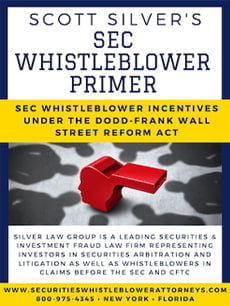The Sarbanes-Oxley Act (SOX)
In 2002, as part of a larger legislative effort to protect investors and financial consumers and rebuild trust in Wall Street, “The Sarbanes-Oxley Act,” commonly known as “SOX,” gave whistleblowers the right to recover damages from a publicly-traded firm if the firm had retaliated against the whistleblower.
SOX protection is limited to a plaintiff who is an officer, employee, contractor (or subcontractor) of a publicly-traded company or a nationally recognized rating agency.
Under SOX, a plaintiff must file a complaint with the Department of Labor within 180 days of the retaliation occurring, and then Labor will issue a determination of compensation. However, if Labor hasn’t made a decision within 180 days after the filing of the complaint, then the plaintiff can file a lawsuit against the company in federal court.
To prevail, a plaintiff would need to establish that:
- They were engaged in a protected (i.e., reporting) activity
- The employer knew of that reporting activity
- The plaintiff was harmed in an unfavorable personnel action
- That the personnel action was related to the reporting activity
Note that the complaint should include the allegations relating to the whistleblowing, but to prevail on a SOX claim, it is not necessary for you to prove the underlying crime the company allegedly committed. Instead, you just need to prove that the company retaliated in response to your revealing of the alleged wrongdoing.
If you, as the plaintiff, are successful, then you would be entitled to reinstatement to the same previous position and back pay (with interest). It’s also possible to receive additional damages, including compensation relating to the discrimination and emotional distress, as well as the fees for attorneys and expert witnesses.
If fears of retaliation are leading you to be reticent about becoming a whistleblower, or if you’re already experiencing some retaliation, the Silver Law Group and the Law Firm of David R. Chase can help. As securities attorneys with many years of experience, we know how to help you be rewarded, not penalized, for doing the right thing. For a free, confidential consultation about your information, contact us through our website or call us today at (800)975-4345.
 Silver Law Group Home
Silver Law Group Home
